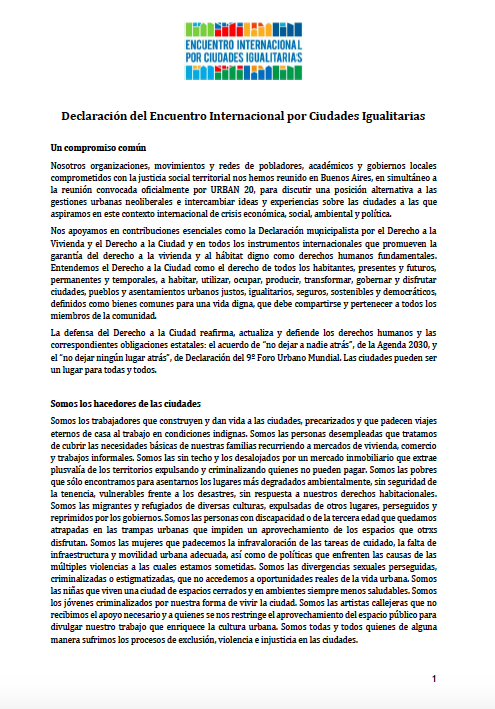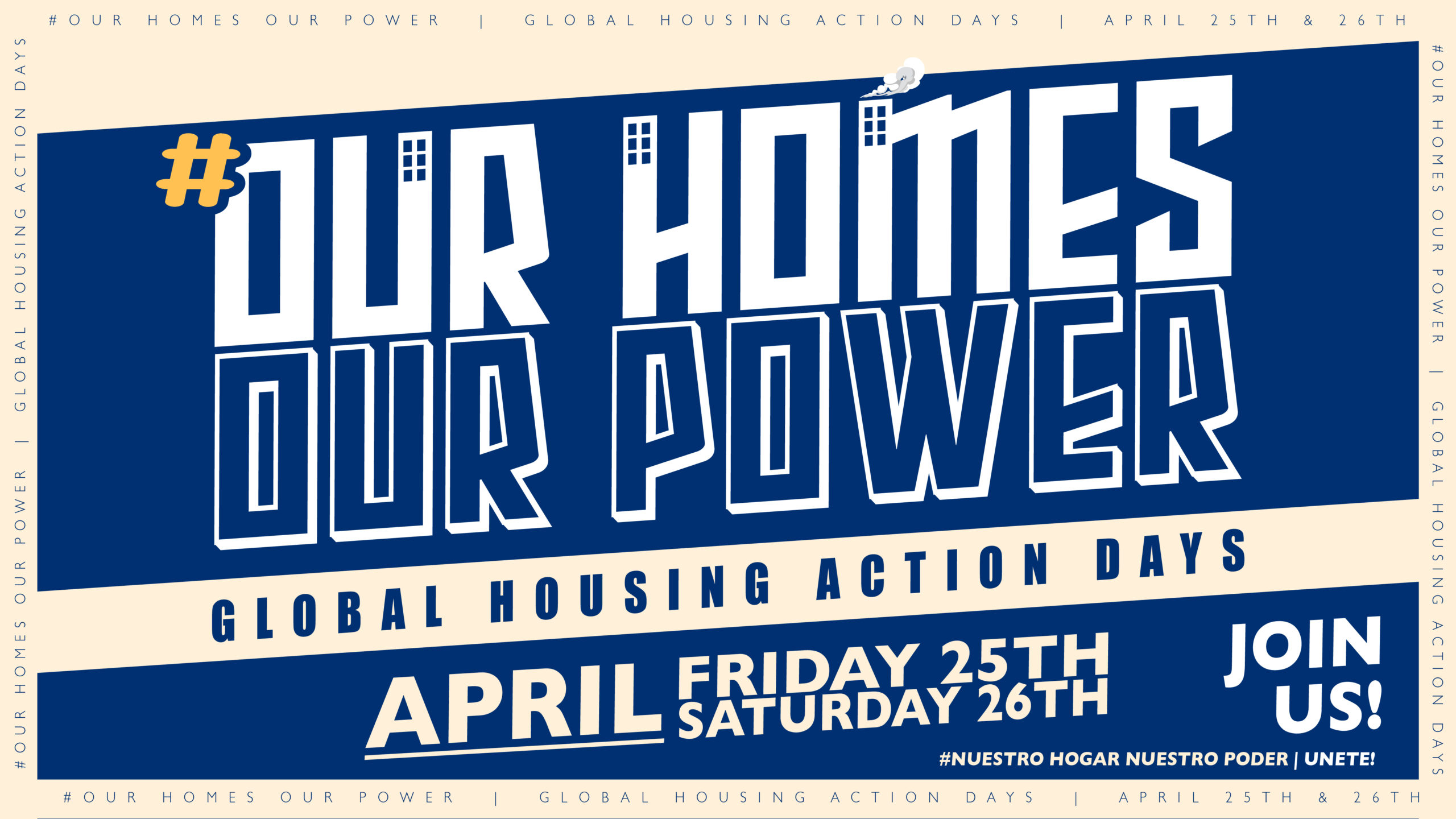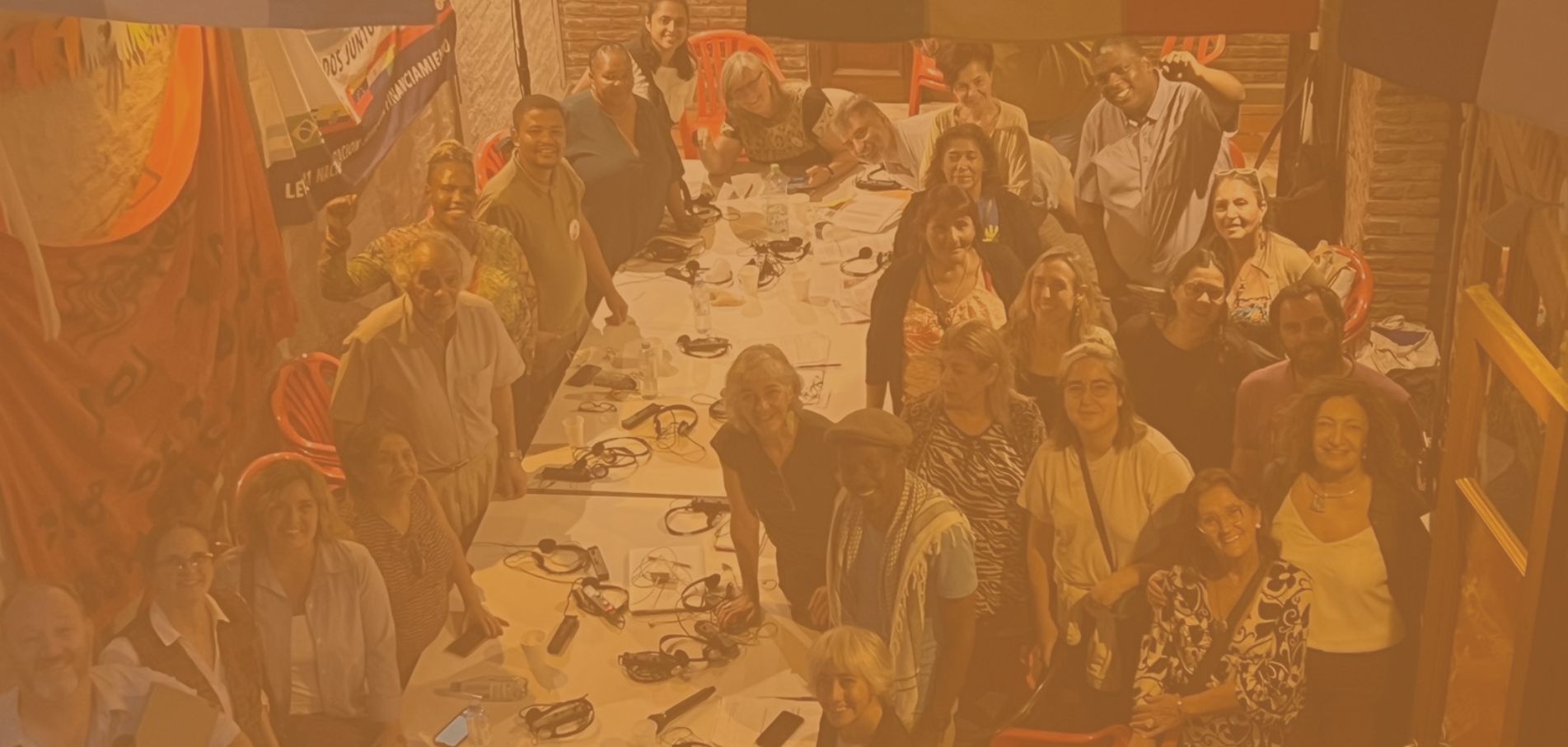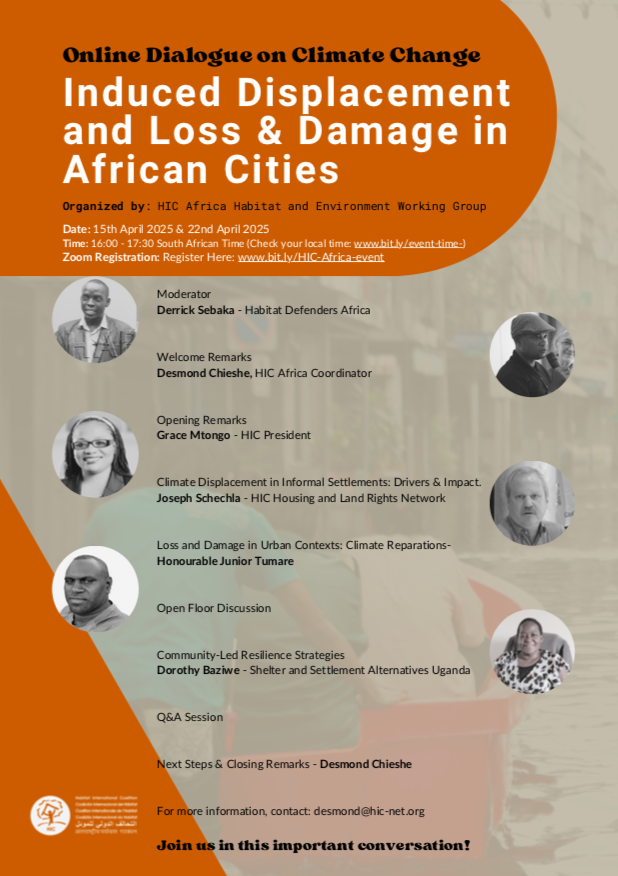Now that these distortions have led to the world’s current financial crisis, housing rights networks call upon the G-20 to build a coordinated programme for financing sustainable habitat. Moreover, the consequent socialization of bank losses at the cost of state programmes for housing, social urban development and development aid risks further deepening of the housing and habitat crisis. The needed new remedial programme would contribute to organic solutions for inhabitants threatened by foreclosures, evictions and dispossession and destruction of housing and land globally. Such an international programme would rest on an already well-developed international understanding of housing rights standards as essential tools for improving the living conditions of at least 1 billion slum dwellers and other affected groups from urban and rural communities and cultures.
In all countries, the [Bretton Woods II] programme should support the construction and renovation of needed homes and livable habitats under public/public, public/private, private/popular or public/popular solutions, but with local control. It should encourage sustainable patterns of production and consumption with renewable local resources, strengthening food sovereignty, including urban agriculture, and reducing transport needs as planet-saving priorities. Especially industrialized countries and emerging markets should pursue housing and housing-renewal solutions with reduced consumption of land and fossil energies.
Any new financial framework must coincide with an improved, less-voracious ideological framework that actually respects and sustains people and communities’ capacities and the environment. This is the moment of truth, not the prevailing ideology of acquisition, private interest and the myopia of promoting “growth” over equitable distribution.
Accompanied by public measurements and regulation of global capital flows and financial speculation, such a “global pact on financing housing & habitat” would contribute to the solution of the global housing crisis, correct misguided development in the world economy and global governance since the 1970s and reduce financial speculation. Programme investments would be directed into activities needed in all countries to create jobs and income at local levels. Thus, it would stabilize domestic and world economies in the situation of a crisis and it would open another path of development in accordance with human rights and growth with social benefit. In this context we call on G-20 leaders to recognize that housing and local infrastructure development, as well as effective citizen participation, have to play an important role in a “Green New Deal.”
To see the signatories organization just clik here




